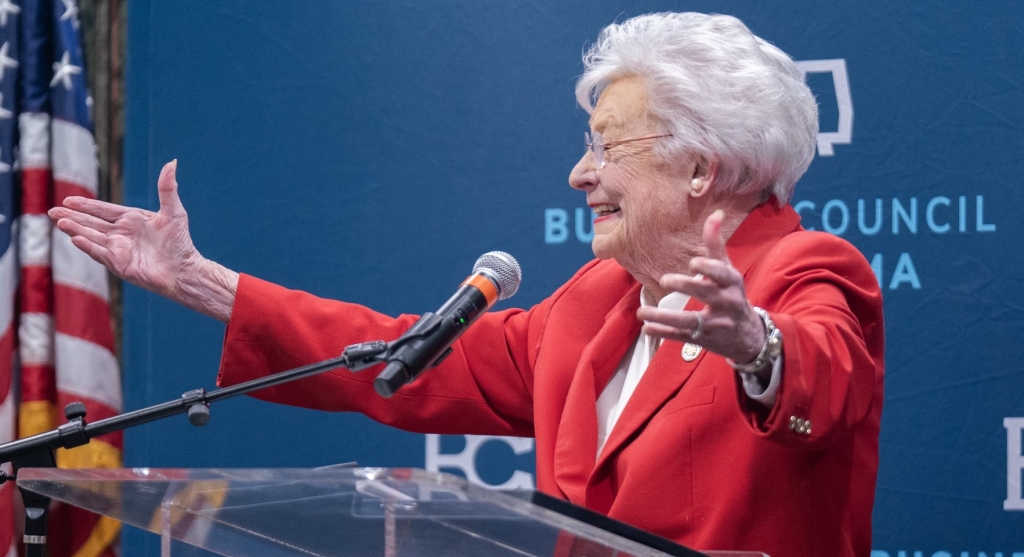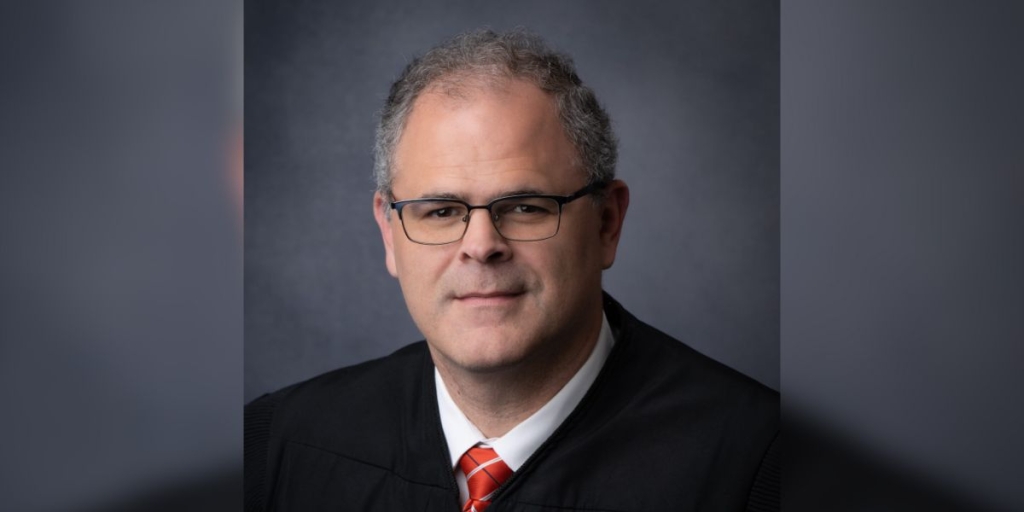
Michael Sentance has been Alabama State Superintendent of Education for just under a year. He’s a known education reformer who isn’t beholden to the teacher’s unions or the education establishment, but he greatly values the teachers themselves and the children they serve. In his short time on the job, his achievements are noteworthy.
- * He generally disfavors Common Core and he’s effectively laid the groundwork to replace it with standards that better serve Alabama’s students
- * He’s secured permission from the federal government to free Alabama from the sub-par ACT-Aspire standardized tests, which were based on Common Core
- * He’s made great progress in reforming Montgomery’s 27 failing public schools and restored the district’s fiscal stability in a short time—a monumental task
- * He’s finalizing a smart strategic plan called Alabama Ascending that will serve our children well
- * He’s put the stars of the profession—the teachers—at the center of his reform efforts
Nevertheless, reports abound that Montgomery insiders who were apparently put off by his hiring want Sentance gone.
When I asked Mr. Sentance if he believes there’s an effort to get rid of him, he said, “Yes, it is true that some people are working very hard to try to remove me from the position.”
When I asked why he said, “Much of their concern is misplaced. There’s a great team of people around me here that understand the depth of the challenge we face, and together we’re working as thoughtfully and creatively as possible to meet those challenges. However, it’s a long process because Alabama’s issues are as profound and deep as any in the country.”
They are indeed. According to U.S. News, Alabama ranks 47th out of the 50 states in education. Interestingly, the state Mr. Sentance came from, Massachusetts, ranks 1st.
At the center of the Mike Sentance controversy is the fact that his employment contract says he must have an annual job evaluation before the end of this year, and every year thereafter. However, State Board of Education (SBOE) members recently received evaluation forms that will be discussed this Tuesday at what’s called a “Special Meeting” of the SBOE. The call for Sentance’s evaluation raises two critical issues:
- Who initiated the evaluation and why was it scheduled now instead of in December?
- Is the evaluation an excuse to fire Michael Sentance?
First, who initiated the evaluation and why was it scheduled now instead of in December?
Some reports indicate that the SBOE’s Vice President, Stephanie Bell initiated the meeting now. When I asked Ms. Bell why it was scheduled now instead of in December, she replied, “The evaluation is due on the anniversary of the date of his hiring, which is August 11. It is not due in December. I served on the committee appointed to write the contract which was approved by the board and signed by Mr. Sentance. We included Mr. Sentance in the process. The board can actually fire the superintendent for cause without an evaluation, according to the contract he signed.”
I also asked the following question of Mrs. Bell, who’s served on the SBOE for some 23 years: “Did you call next week’s meeting?” She replied, “The Special-Called meeting was called by the board and Mr. Sentance. We will discuss the annual evaluation board composite results, the board’s committee policy recommendations for working with our outside legal counsel, and Mr. Sentance’s proposed ESSA Plan. The public announcement was posted last week.”
From that outside looking in, that seems to be only partially true.
When I asked Sentence about the meeting, he said “I did not call the Special Meeting. I scheduled a work session to present and review our state ESSA plan, the Federal education law. Everything else was Stephanie’s work. I have no idea why the review is being done months before it was scheduled. I wasn’t provided any notice.”
Sentance’s response raises two important distinctions:
- He called for a work session, not a Special Meeting. This matters because the Board cannot vote at a work session, but it can hold a vote at a Special Meeting—like a vote to fire Sentance, for example.
- Whatever type of meeting it is, it was not originally called for the purpose of Sentance’s evaluation.
To the latter point, SBOE member Mary Scott Hunter said, “The meeting was for the purpose of discussing the ESSA plan. Mrs. Bell unilaterally added the review of Mike Sentance.”
SBOE member Betty Peters holds the same view: “Stephanie Bell sent out the evaluation forms out unilaterally. I find the rush to complete the evaluation a little strange. Since the board voted last year that we must complete Mr. Sentance’s evaluation no later than Dec. 31, 2017. I believe a more appropriate time for his evaluation is in December, giving him a reasonable opportunity to accomplish the goals he and the board agreed to in his contract.”

From the comments above, one could reasonably conclude that Bell changed the event from a work session to a Special Meeting, and that raises the second critical issue: Was the evaluation at this meeting called for the sole purpose of firing Sentance?
To that end, I asked Stephanie Bell the following question: “Do you plan to call for the termination of Mr. Sentance?”
“There’s nothing to substantiate the false rumor that any board member plans to call for his termination, although the board has the option to terminate for cause. The evaluation is the best and most appropriate. I continue to stand by providing fairness to Mr. Sentance. Board members appropriately shared our concerns publicly in a work session with Mr. Sentance in March. We will discuss the results of the evaluation which he agreed to in meetings with the board last year. I will hear the results of the board’s evaluation for the first time when we meet as a board with our attorney. I have asked board members to send their evaluations directly to our board attorney. There is no agenda other than what Mr. Sentance agreed to in his contract after he was hired on August 11, 2016.”
In an attempt to gain clarity, I emailed her the following question: “Do you support Mr. Sentence—yes or no?” She kindly replied:
“My concerns have been expressed, along with every other board member, directly to Mr. Sentance in a public board work session at Mr. Sentance’s mid-year evaluation in March. The video of the work session is posted on the state department’s website. My responsibility is to ensure that the process is followed according to the contract. There will be a composite. My concerns will be included in the evaluation along with every other board member who decided to participate in the process they approved, along with other boards, last year.”
I asked other SBOE members if they’d heard the rumors that Tuesday’s evaluation session is a precursor for Sentance’s termination.
Mary Scott Hunter said,
“For some reason, Stephanie Bell wants Mr. Sentance out of there, and she’s running the show right now. I’ve heard the same rumors, but I do not know whether they’re true.”
I asked Betty Peters the same question.
“It’s absolutely an attempt to fire Mr. Sentance. Also, Stephanie basically said that if we didn’t submit an evaluation, it would be the equivalent of giving Mr. Sentance a zero. I’ve always held Stephanie Bell in high esteem but she’s taken away my voice and the voice of the people of District 2, and this is more than I can stand.”
Hunter said she’s not participating in the evaluation, regardless. “Honestly, I don’t want to confer legitimacy on a process that’s designed to do nothing more than to push Mike Sentance out the door before he’s been given a chance to do his job.”
Governor Kay Ivey serves as President of the SBOE. Her spokesman, Daniel Sparkman, said the Governor has also declined to participate in the evaluation or attend the meeting, stating:
“Governor Ivey already had a full day planned in Auburn prior to the special Board meeting being called, and therefore she will be unable to attend. She also did not participate in the evaluation because she hasn’t had the opportunity to work with Mr. Sentance enough to form an opinion of his work.”
Mary Scott Hunter went on to say,
“Normally the Governor’s office conducts the evaluation since the Governor is the standing President of the Board. The demand for an early evaluation was evidently not even coordinated with Governor Ivey who is not scheduled to attend our meeting this Tuesday, as far as I know.”
Whatever the case, the meeting is happening Tuesday and at least some SBOE members will be participating to evaluate Sentence’s performance.
Concerning that, I asked Ms. Hunter about Sentance’s progress on the lingering issue of Common Core, and she said,
“Remarkably, Michael Sentance has the support of the Tea Party and the business community. His quest for high standards which reflect Alabama’s values garners a diverse coalition of support, and this is what we need to get this issue resolved.”
What will be interesting on Tuesday, is to see how SBOE members like Jackie Zeigler and Cynthia Sanders McCarty respond to any motions that may arise regarding Sentance’s termination.
Another very interesting question is how the state legislature will view these actions. If the Board moves to terminate Sentance this soon, given all he’s accomplished in such a short time, most state leaders understand how deeply this will damage Alabama’s credibility.
For this reason, it’s not far-fetched to think the legislature may eventually conclude that it has no choice but to intervene. If the Board gets too far over its skis on this (politically), the legislature probably has the statutory authority to step in. Other states have used such creative solutions as a hybrid board—one composed of both elected and appointed members. Other successful states have fully appointed boards. There are compelling policy arguments for hybrid boards and if the SBOE ends up placing personality disputes and political vendettas above the welfare of Alabama’s students and teachers, don’t be surprised to see the legislature move in that direction.
Such a move would likely dilute an ineffective and entrenched board, ending its domination by the education establishment.
The SBOE is a constitutional body in Alabama, but the legislature has options. For example, in addition to an appointed or hybrid board, they could make Sentance’s job a cabinet-level position, just like the head of the Alabama Law Enforcement Agency. That effectively makes the Superintendent an employee of the Governor, and largely defunds the SBOE down to a skeleton crew that simply manages federal grants and such.
Whatever way the legislature might choose to skin the cat, President Pro Tem of the Alabama Senate, Del Marsh, made it to clear to Yellowhammer that the issue is on the table, especially if the SBOE fires Mike Sentance before he’s been given a fair chance.
“There’s no doubt the Board is way too political. That’s why I’ve advocated for and support an appointed school board. If you look at the states that are successful in educating their children, most of them have appointed school boards. It works because it takes the politics out of the equation. I’m open to hybrid boards as well. The bottom line is, Mr. Sentance hasn’t been there long enough to get established, and this whole thing is just a way to push him out. If they move forward and push Sentance out, in my opinion, they’ve spiraled completely out of control.”
Come Tuesday, the SBOE will have the opportunity to prove that the talk of firing Sentance is just a rumor, as Stephanie Bell said. In the interim, we can only hope the Board will find the wisdom to subordinate its political quarrels to the good of the state.
If they don’t, Alabama’s children will be the losers. And what the rest of the country will conclude is that the importance of what those students learn, know, and achieve has again been lost in the vindictive swamp of Alabama’s insider politics. In the swamp, getting even always trumps getting better.
For the sake of our children and teachers, we can only hope that the New Alabama will rise up and that will not be the case this Tuesday.
News Analysis by Larry Huff, Yellowhammer’s Executive Editor. You can follow him on Twitter at @LHYellowhammer












